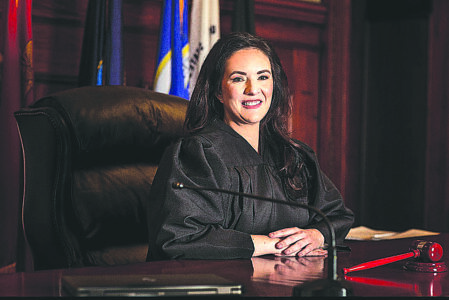St. Clairsville Public Library fears funding will flounder

Photo Provided St. Clairsville Public Library Services Supervisor Preston Tedrick teaches area residents new skills during one of the library’s many technology programs. Such programs could suffer if Ohio’s proposed budget allocations cut library funding.
ST. CLAIRSVILLE — Local library leaders are alarmed at some of the provisions in Ohio’s proposed budget appropriations bill.
The Ohio House of Representatives recently passed House Bill 96, which is now being considered by a state Senate committee. In addition to containing an estimated $100 million in new taxes, according to the Office of Budget and Management, the proposal would significantly alter the funding structure for Ohio’s public libraries.
St. Clairsville Public Library Director Jo Papillo said the new bill raises deep concerns about the long-term sustainability of these critical community institutions.
The legislation would eliminate the requirement that a percentage of the state’s General Revenue Fund be dedicated to the Public Library Fund. In its place, the bill introduces a line item appropriation, allocating $490 million in Fiscal Year 2026 and $500 million in Fiscal Year 2027. While these numbers may appear stable on paper, this shift makes public libraries more vulnerable to future budget cuts, with concerns from key sources that the plan at the next budget hearing is to eliminate the Public Library Fund altogether.
For context, 51% of Ohio public library funding currently comes from the PLF. This structural change would represent the most significant threat to Ohio library funding in decades. In fact, Ohio’s public libraries are already under financial strain, receiving $27 million less in Calendar Year 2024 compared to 2023, and operating at funding levels last seen in the year 2000 — a full 25 years ago.
The bill is expected to be on the Senate floor for a final vote June 12.
“These changes put our public libraries in a precarious position,” Papillo said. “By replacing guaranteed revenue with a line item appropriation, the state is signaling that library funding could be subject to the political winds of each budget cycle. That’s not stability — that’s a gamble.”
Beyond financial implications, the legislation includes policy mandates that directly impact the operations and governance of public libraries. For instance, public libraries will be required to place materials related to sexual orientation or gender identity or expression in areas not primarily visible to minors, raising significant concerns about censorship and equitable access.
According to Papillo, Ohio’s public libraries are consistently ranked among the best in the nation, providing not only books and digital resources but also essential services such as early literacy programs, internet access, job training and community outreach. She said undermining their funding jeopardizes all of this.
Library advocates encourage voters to contact Ohio Sen. Brian Chavez at 614-466-6508 to urge him to reject these changes and ask the Ohio Senate to restore the Public Library Fund to 1.75% of the General Revenue Fund — in alignment with Gov. Mike DeWine’s initial budget proposal.
“Ohio libraries deserve a sustainable and dependable funding model that reflects the value public libraries bring to every community in the state,” Papillo concluded.



